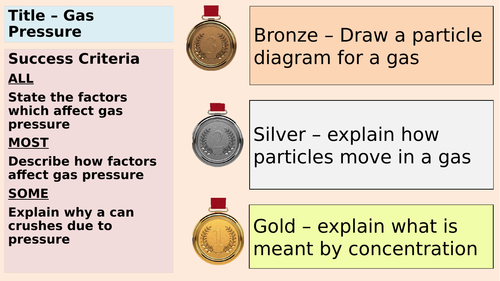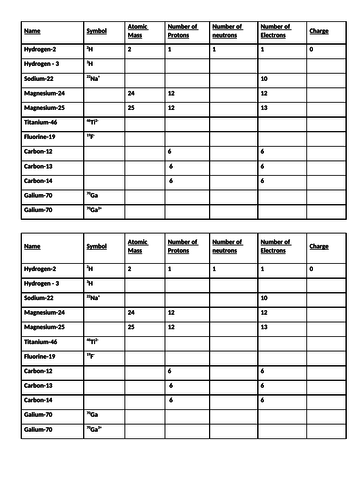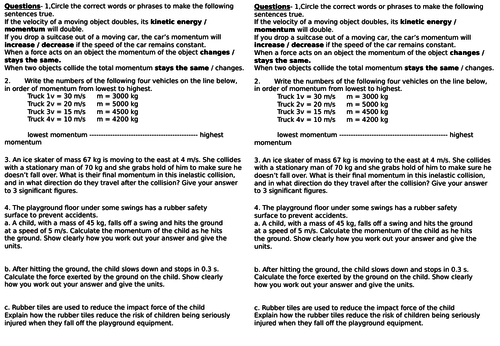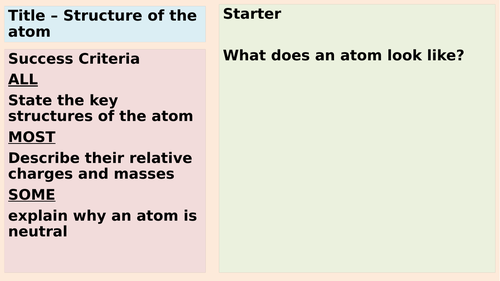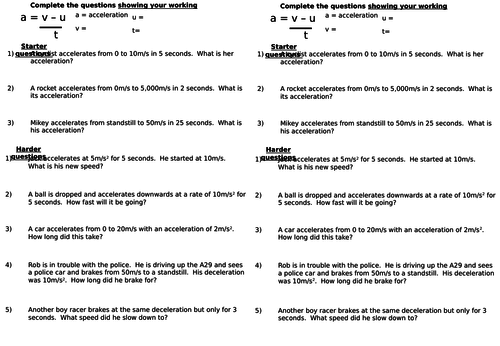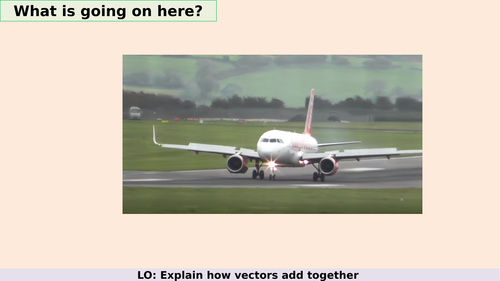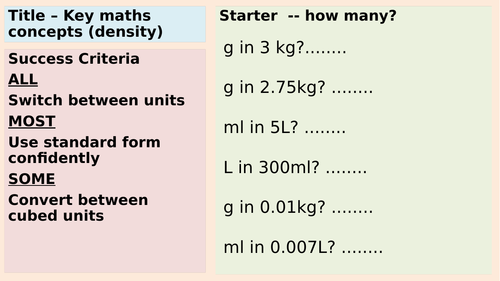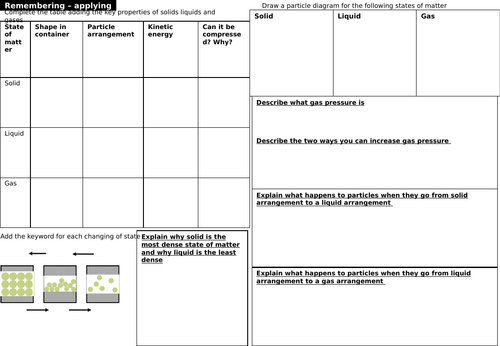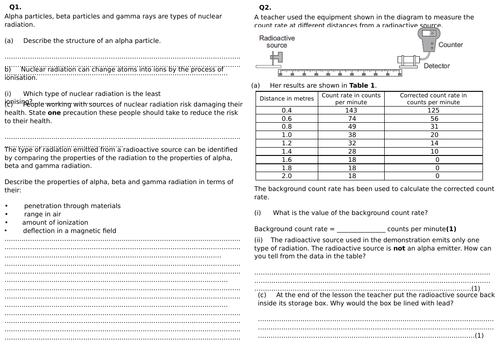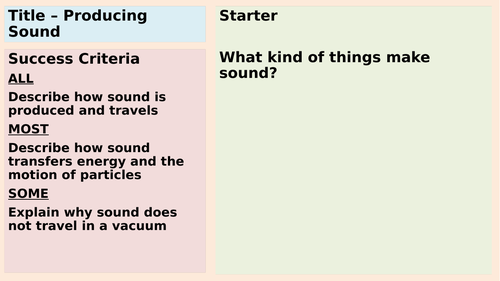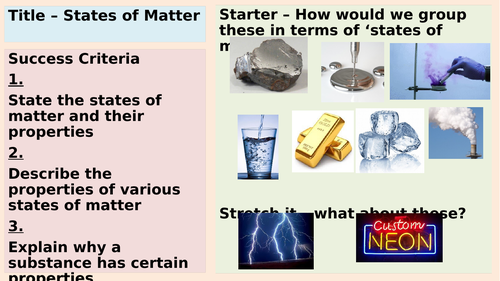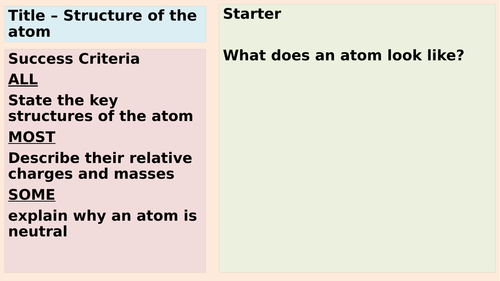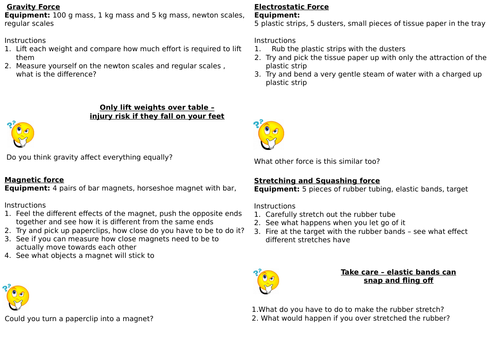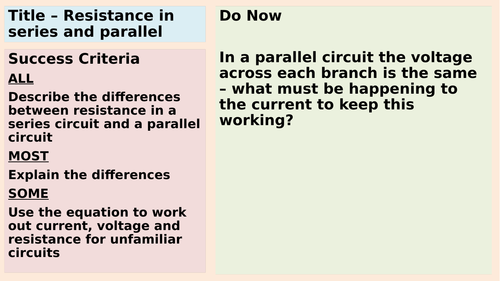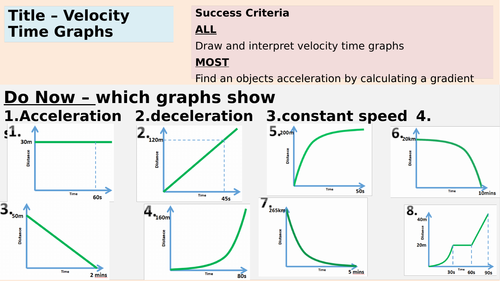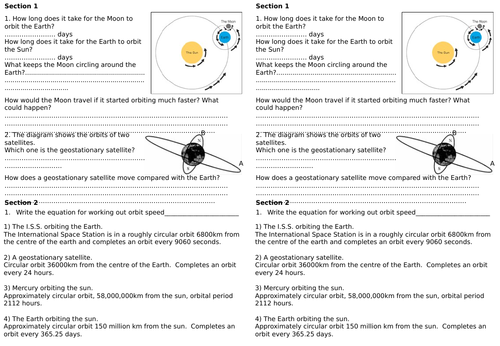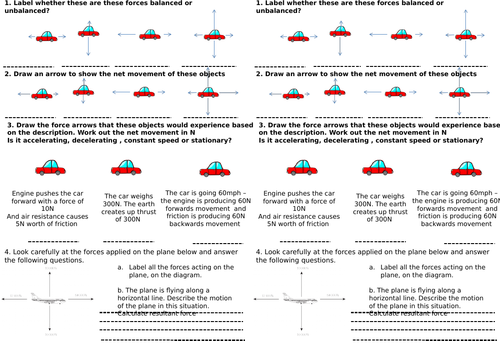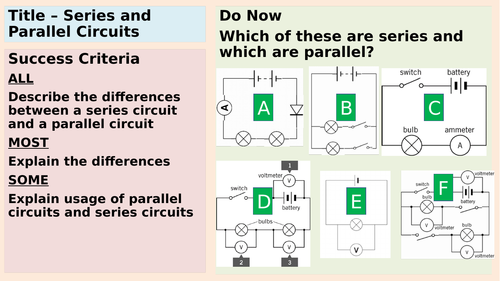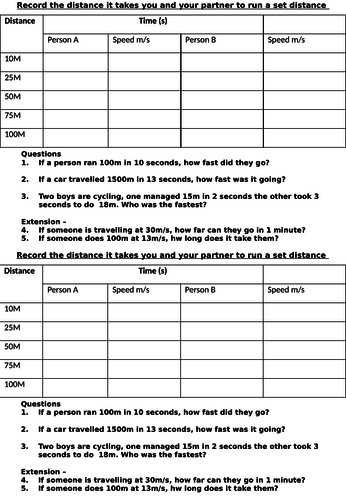
101Uploads
46k+Views
35k+Downloads
Physics

Gas Pressure AQA
Two lessons on gas pressure for AQA. Lesson on introduces the concept of gas pressure and factors which affect gas pressure.
Lesson two focuses more on Boyle’s Law with accompanying questions

Isotopes AQA GCSE
Lesson recapping atomic structure and looking at working out isotopes - includes worksheet and exam questions

AQA Momentum with question sheet
This would be suitable for AQA GCSE work on Momentum. It includes some examples of momentum and calculations on a worksheet to work through. Answers to worksheet on powerpoint.

KS3 Frequency and Amplitude from sound and light scheme
This is the lesson on identifying frequency and amplitude in waveforms from my sound and light module. If you like this lesson consider looking at the whole scheme.
The lesson looks at drawing waveforms, examples, how to identify the frequency and amplitude and how it relates to hearing.
Full scheme found here https://www.tes.com/teaching-resource/ks3-sound-and-light-full-scheme-of-work-resources-12263056

AQA GCSE Structure of the Atom
A lesson looking at the structure of the atom, each sub atomic particle, what the atomic number and mass number refer to and how we can tell the number of each sub atomic particle. It has been split into two lesson but could be condensed to one by taking some activities out. It is used mainly for the radioactivity work for AQA GCSE Physics but would also work for Chemistry (The Periodic Table)

AQA Acceleration lesson
Lesson which takes you through how to calculate the acceleration of an object with real life examples. Looks at both working out acceleration with time and without time
worksheet with questions

AQA GCSE Vectors and Scalars
A lesson covering definitions of vectors and scalars and how they can be added.
Lesson contains powerpoint with activities plus a leveled question sheet to test understanding.

Key Maths Concepts for the AQA Particle Model of Matter
A lesson exploring all th key maths concepts that will be needed for the AQA particle model of matter module

AQA Particle Model of Matter Module Revision Sheets
Revision sheets for AQA Density/Particle model of matter module. Covers all key concepts

AQA Radiation Types and their Uses (2 lessons)
Two lessons on the types of radiation and their uses. Lesson includes multiple tasks throughout . Card sort activity and exam questions are included as well, both have answers on the powerpoint

AQA States of Matter
Lesson for states of matter (AQA) introducing solids, liquids and gases properties and nailing down the key terms for this module and in exams

Atomic structure (two lessons)
Two lessons covering the sructure of atoms and how to work out subatomic partciles

Types of Force
Lesson where students look at the basics of forces and complete a forces circus to investigate the effects of some examples. Students learn to categorize forces as contact or non-contact.

Resistance in series and parallel
Lesson looking at resistance differences in series and parallel - includes worked through questions - a practical to investigate resistance in parallel circuits - and graph exercise with completed graph for students to compare to

AQA Velocity Time Graphs and Acceleration
Presentation which explains how to work out acceleration and distance from velocity time graphs, both with constant acceleration and non constant acceleration
worksheet contains questions asking students to use this knowledge to work out acceleration and various points. Answers on powerpoint

KS3 Orbits
A lesson looking at how orbits are maintained and examples of different types of orbit. Suitable for KS3 or low ability KS4.

AQA Resultant Force
A powerpoint for introducing the idea of resultant forces and force arrows. It includes a worksheet for students to work through. Answers on powerpoint.

Comparison between series and parallel circuits
A lesson looking at a comparison between series and parallel circuits - a review of the previous few lessons. Includes a task where students must work out current and voltage on a circuit which has both series and parallel elements. Has exam questions which have answers on powerpoint to go through with students

AQA Speed Distance Time Calculations
Powerpoint which takes you through how to work out speed, distance and time with given objects. It also looks at the concept of relative motion. There are two worksheets, one is practice questions with answers on the powerpoint. The other is for use when getting students outside to workout their speed over known distances.

